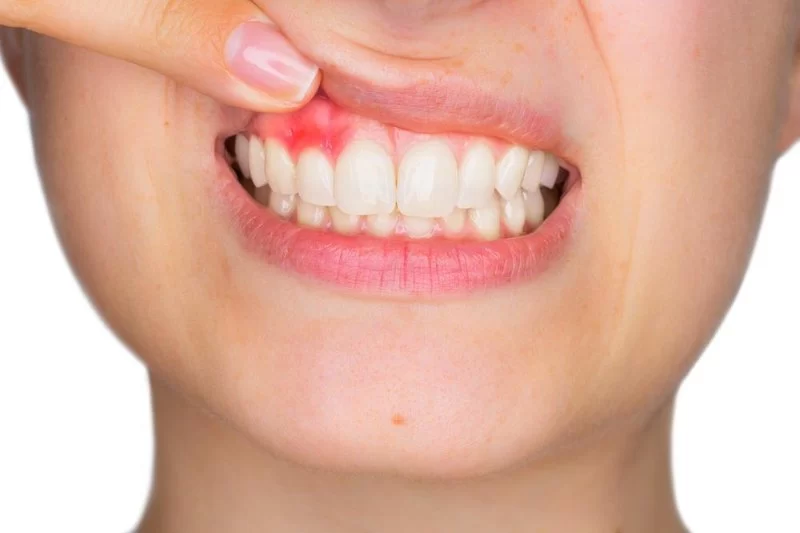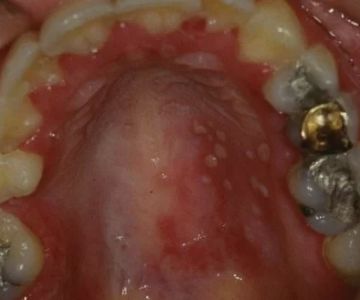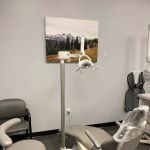
Does Hashimoto's Disease Affect the Oral Cavity?
Understanding Hashimoto's Disease
Hashimoto's disease, also known as Hashimoto's thyroiditis, is an autoimmune disorder that affects the thyroid gland. In this condition, the immune system attacks the thyroid gland, leading to hypothyroidism, or an underactive thyroid. This can result in a range of symptoms, including fatigue, weight gain, depression, and sensitivity to cold. While many people are familiar with the systemic effects of Hashimoto's disease, fewer may realize that it can also affect oral health. The mouth and teeth can be influenced by the hormonal imbalances caused by this condition, often leading to complications that can be managed with the right care.
How Hashimoto's Disease Affects Oral Health
Although Hashimoto's disease primarily targets the thyroid, its effects can ripple throughout the body, including the oral cavity. Here's how:
1. Dry Mouth
One of the most common oral health issues associated with Hashimoto's disease is dry mouth, also known as xerostomia. This occurs because the thyroid hormone imbalance can affect the production of saliva. Saliva is essential for keeping the mouth moist and helping to wash away food particles and bacteria. Without adequate saliva, individuals with Hashimoto’s may experience discomfort, difficulty swallowing, and an increased risk of dental issues, such as tooth decay and gum disease.
2. Gum Disease and Periodontal Issues
Gum disease is another oral health issue that can be exacerbated by Hashimoto’s disease. The hormonal imbalances can weaken the immune system, making it harder for the body to fight off infections, including those in the gums. As a result, individuals with Hashimoto’s disease may be more susceptible to conditions like gingivitis and periodontitis. These conditions cause inflammation, bleeding, and recession of the gums, and can ultimately lead to tooth loss if left untreated.
3. Increased Risk of Tooth Decay
The dry mouth caused by Hashimoto’s disease can contribute to an increased risk of tooth decay. Without enough saliva to neutralize acids and wash away food particles, plaque builds up on the teeth, leading to cavities and enamel erosion. Additionally, those with an underactive thyroid may be more likely to consume sugary or acidic foods, which can further increase the likelihood of tooth decay.
4. Altered Taste Sensation
Hypothyroidism can affect the sense of taste, making food seem bland or tasteless. This can lead to changes in eating habits, potentially increasing the consumption of foods that are more damaging to oral health. For instance, people may crave sweeter or more acidic foods, which can increase the risk of tooth damage and oral discomfort.
Managing Oral Health with Hashimoto’s Disease
Managing oral health effectively is essential for individuals with Hashimoto’s disease. Here are some steps that can help mitigate the impact of the condition on the oral cavity:
1. Stay Hydrated
To combat dry mouth, it’s important to stay hydrated. Drinking plenty of water throughout the day can help keep the mouth moist and support the production of saliva. Additionally, using a humidifier at night can help prevent the mouth from drying out while sleeping.
2. Use Saliva Substitutes
For those who suffer from severe dry mouth, saliva substitutes can help alleviate discomfort. These over-the-counter products are available in sprays, gels, or lozenges, and can help keep the mouth lubricated. It’s best to use them throughout the day, especially during meals.
3. Regular Dental Checkups
Since Hashimoto’s disease can increase the risk of gum disease and tooth decay, it’s important to see a dentist regularly. A dentist can help identify and treat any early signs of oral health issues, such as gingivitis or cavities, before they become more severe. Routine cleanings and checkups are essential for maintaining optimal oral health.
4. Proper Oral Hygiene
Maintaining good oral hygiene is vital for everyone, but especially for those with Hashimoto’s disease. Brush your teeth at least twice a day with fluoride toothpaste and floss daily to remove plaque and prevent gum disease. Additionally, using a mouthwash that helps fight dry mouth can be beneficial. Avoid sugary foods and beverages, as these can worsen the effects of dry mouth and increase the risk of cavities.
5. Consult with Your Doctor
If you have Hashimoto’s disease and are experiencing oral health issues, it’s a good idea to consult with your doctor and dentist. Your doctor may adjust your thyroid medication or recommend additional treatments to help manage symptoms. Your dentist can provide specific advice tailored to your condition and help create an oral health plan that works best for you.
Real-Life Experience: Managing Oral Health with Hashimoto’s Disease
Sarah, a 45-year-old woman diagnosed with Hashimoto’s disease, struggled with dry mouth and frequent gum irritation. After visiting her dentist, she learned that her condition was contributing to her oral health problems. Her dentist recommended using a fluoride mouth rinse and saliva substitutes to keep her mouth moist. With these changes, along with regular checkups and better hydration, Sarah noticed a significant improvement in her oral health. Her gum inflammation reduced, and she felt more comfortable throughout the day. She also worked closely with her doctor to adjust her thyroid medication, which helped alleviate other symptoms of Hashimoto’s disease. Sarah’s story is a testament to the importance of taking a proactive approach to oral health when living with autoimmune diseases like Hashimoto’s.
Why Family Dentistry Online Can Help You with Hashimoto’s Disease and Oral Care
At Family Dentistry Online, we understand the unique challenges posed by Hashimoto’s disease and its effects on oral health. Our team of experienced professionals can help you manage your dental care effectively and provide personalized advice tailored to your specific needs. Whether you need recommendations for products to combat dry mouth, tips for improving your oral hygiene, or a comprehensive oral care plan, we’re here to help you maintain optimal oral health despite the challenges of autoimmune conditions.
Visit Family Dentistry Online today to learn more about how we can support your oral health and help you manage the impact of Hashimoto’s disease on your dental well-being.







 Modern Dental3.0 (148 review)
Modern Dental3.0 (148 review) Greencastle Dental4.0 (653 review)
Greencastle Dental4.0 (653 review) Comfort Dental Puyallup - Your Trusted Dentist in Puyallup4.0 (312 review)
Comfort Dental Puyallup - Your Trusted Dentist in Puyallup4.0 (312 review) Little Smiles of Port Washington5.0 (83 review)
Little Smiles of Port Washington5.0 (83 review) Dental Analysis Family Dentistry4.0 (92 review)
Dental Analysis Family Dentistry4.0 (92 review) Preserve Dentistry5.0 (13 review)
Preserve Dentistry5.0 (13 review) The Importance of Oral Health Education During Pregnancy for a Healthy Pregnancy
The Importance of Oral Health Education During Pregnancy for a Healthy Pregnancy Why Skipping Dental Checkups Can Lead to Bigger Oral Health Problems
Why Skipping Dental Checkups Can Lead to Bigger Oral Health Problems Best Tips for Brushing Your Teeth Properly for Healthy Gums: Essential Techniques for Oral Health
Best Tips for Brushing Your Teeth Properly for Healthy Gums: Essential Techniques for Oral Health Advantages of Porcelain Dental Restorations
Advantages of Porcelain Dental Restorations How Can Diabetes Cause Tooth and Gum Problems? Preventing and Managing Oral Health Issues
How Can Diabetes Cause Tooth and Gum Problems? Preventing and Managing Oral Health Issues Healthy Habits for Promoting Good Oral Health and Hygiene: Tips for a Healthy Smile
Healthy Habits for Promoting Good Oral Health and Hygiene: Tips for a Healthy Smile